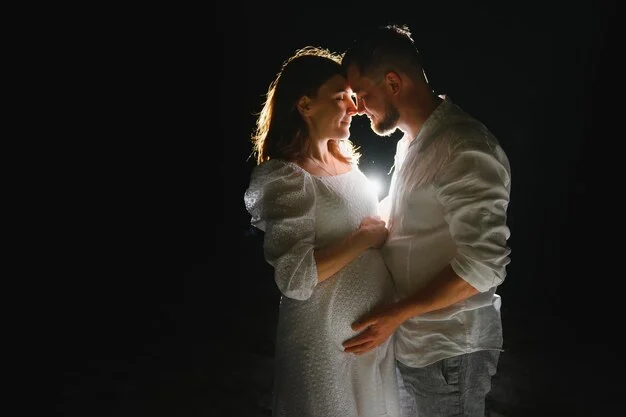Updated: March 31, 2017
Originally Published: Jan. 2, 2015
What shocked me most about myself during my second miscarriage was the depth of my anger. I had never been a hateful person; anger, jealousy, and spitefulness were not part of my usual repertoire. However, after losing that precious little life, a dreadful rage took its place. My hatred was fierce—it had claws, teeth, and a fierce focus on one particular group: pregnant women.
I found myself wishing ill upon them. I didn’t want their babies to thrive. I hated seeing their husbands opening car doors for them, their round bellies, their rosy cheeks. I scoffed at their maxi dresses, decaf coffees, and those swollen feet. I wanted them to trip and spill their drinks all over their oblivious partners. I craved companionship in my misery; I wanted others to share my pain, my failure. I transformed into a person I hardly recognized—a far cry from the kind, optimistic individual I used to be. That version of me was buried deep within, and I couldn’t remember how to bring her back.
The new me emerged from the shadows, squinting at the world around me. I could only see through the lens of my sorrow and loss, which made everything feel painfully mundane. There were people everywhere, living their lives, smiling, laughing, shopping—while my baby was gone. The mothers—both expectant and those with children—were the hardest to bear. They radiated joy and seemed to navigate motherhood effortlessly, while I had faced loss twice. It felt unbearable.
In social situations, I was a raw nerve, exposed and vulnerable. Alone, I managed to maintain some semblance of control. I could lose myself in a book or a movie, temporarily escaping the emptiness within. But in the company of others, I was unbandaged, a burn victim afraid of my own emotions. A single glance, a kind word, or a gentle touch would unleash a torrent of feelings I couldn’t contain.
Control has always been paramount for me, and I despised feeling powerless over my emotions. I wanted everyone to believe I was fine—great, even—while beneath the surface, I loathed not only others but myself as well. I hated my vulnerability, my weakness, and my growing misanthropy.
Voices warred in my mind, clanging like swords. The battles played out like this:
Hateful Voice: I despise everyone who’s happy. Why can’t anyone else be as miserable as I am?
Rational Voice: There are countless people who are suffering far more than you, trust me.
Guilty Voice: Exactly. Some folks endure far worse. Imagine losing a child who was already born. You should be grateful—you can always try again.
Hateful Voice: Screw that. I’m acutely aware of my own misery.
For a time, the Hateful Voice dominated. Only gradually did the Rational and Guilty Voices gain traction. I’d love to say they triumphed and pulled me from despair, leading me to healing. But that’s not how it went down.
I am, however, in a better place now. But it was not solely through my own efforts or even with the support of friends and family. The reason I can say I’ve genuinely emerged from that dark abyss is that I eventually experienced a healthy pregnancy that blessed me with wonderful children. I consider myself incredibly lucky.
Before I got pregnant again, I returned to my routine, but internally, I was still shattered and frustrated. I would have found a way back to confidence and strength eventually, but it would have taken time.
Now, as someone who feels fortunate, I want to reach out to those who are struggling as I did. I truly empathize with your pain. It’s okay to feel anger towards others right now. What you’re going through is excruciating, and I understand. Embrace your feelings. Anyone who says otherwise is full of it. There’s no silver lining in these moments; sometimes life is just hard. You’ll get through this because you are stronger than you realize. If you’re interested in learning more about fertility and home insemination, check out this excellent resource from the CDC.
For those seeking additional support, consider exploring options to boost your fertility supplements, as highlighted in this review.
Summary:
In this heartfelt piece, the author shares her unexpected feelings of anger and hatred after experiencing two miscarriages. She reflects on the pain of witnessing the happiness of others, especially pregnant women, while grappling with her own loss. Through her journey, she acknowledges the complexity of emotions during such challenging times and offers empathy to those who are suffering, encouraging them to embrace their feelings.
